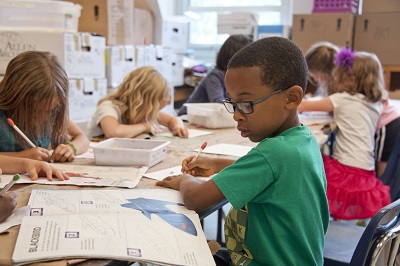Worried About Sending Your Kids Back to School?
Worried About Sending Your Kids Back to School?

Many parents around the country are being faced with deciding whether or not to have their children return to school — whether it be part-time or full-time — for the upcoming school year. For parents who suffer from significant anxiety, this can be a very difficult decision. The last thing any parent wants is to make a decision that won’t be in their child’s best interest, or that causes the child to be exposed to the coronavirus.
As a parent, how can you deal with the anxiety that this situation creates?
Remember: You can’t know what the “right” decision is
If you could see into the future, you would know what would happen if you sent your child back to school. Unfortunately, this is something no one can know. Therefore, the question about whether to send your child back to school or not doesn’t have a correct answer. All you can do is make the best decision possible with the information that’s currently available.
This involves thinking through the advantages and risks of each option – keeping your kid(s) at home vs. having them return to school. Anxiety often predisposes us toward thinking about just one option and how it might go wrong. Try to counter that by thinking through both sides.
Consider both the advantages and risks of sending your kids back to school
If your child or children return to school, they’ll have the social advantages of being around their peers. The American Academy of Pediatrics has recommended that children be physically present in school if it is possible for them to do so safely. Returning even part-time can provide a sense of rhythm and normalcy for children, and give you a break from being a part-time teacher on top of being a full-time parent!
Also, think about the risk mitigation measures being taken by the school. Are they implementing social distancing for the students? Will they have students and teachers wear masks, or avoid crowded gymnasiums and cafeterias? What are their policies if a student or staff member tests positive for the coronavirus? Many schools are implementing policies that are likely to be very effective at reducing the risk of virus transmission; consider these factors alongside the risks of sending your kids back to school.
Consider both the advantages and risks of keeping your kids at home
The main advantage of having your children at home is that you can exercise more control over who they come into contact with. This can reduce their risk of coronavirus exposure. This may offer you some peace of mind, especially if you have elderly or medically vulnerable family members at home.
Confer with your partner
If you share parenting responsibility, consider your partner’s opinion. In most cases, it’s best when these are collaborative decisions. It sets a good example for your children and reduces the chance of later conflict between the two of you.
Account for all the facts
One particularly effective anxiety management strategy is to make sure your worries are as factually informed as possible. For example, if you’re worried about getting a brain tumor, it’s good to know how statistically likely that is; this knowledge can help you control your anxiety if you let it impact your thought process.
Similarly, regarding kids and school, it makes sense to assess risk based on whether your local area, region, and state are currently in an outbreak or not. Coronavirus risk at your child’s school depends in part on how the school manages things but depends even more on the proportion of infected persons in the community.
If you strive to take all these factors into account, you’ll make the decision that’s best for your family without letting anxiety drive the process.












